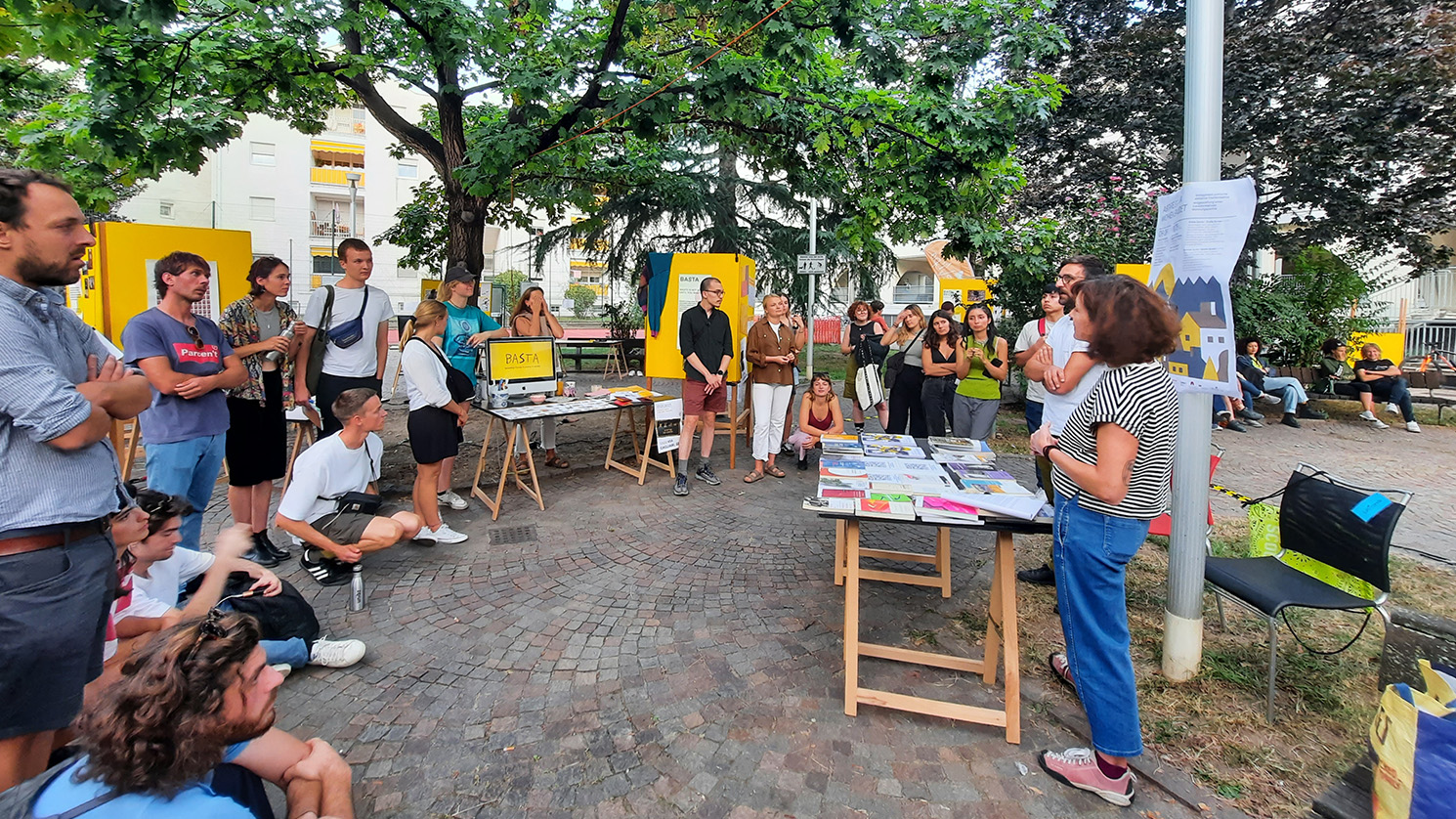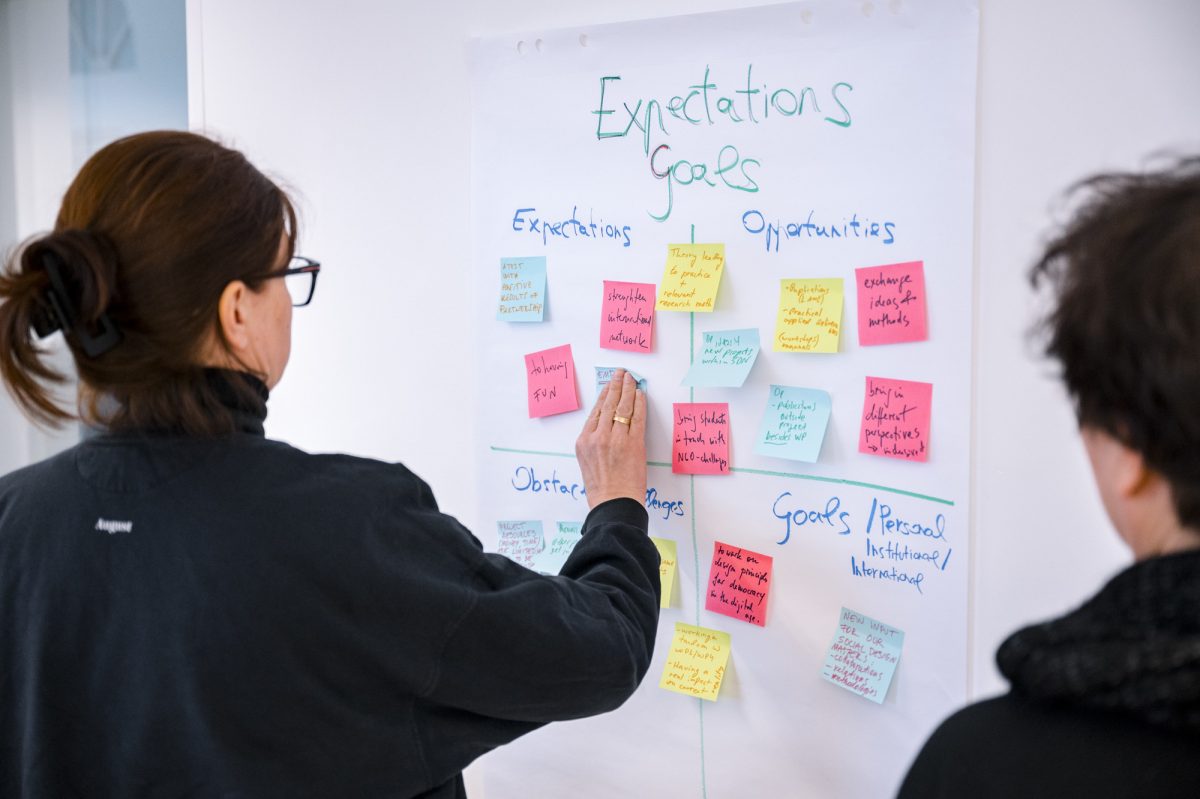ERASMUS+ KA203 – Strategic Partnerships for higher education
Change Agents is a “cooperation partnerships in higher education” funded by the Erasmus+ programme of the European Union. The project consortium consists of six higher education institutions (MOME, unibz, EKA, UdK, ELISAVA, Shenkar) and two NGOs as associated partners (OfficineVispa in Bozen-Bolzano and Democratic Society in Berlin).
“How to establish collaborations serving the real needs of different communities by the use of design?”
The main objective of Change Agents is to create lasting infrastructures of collaboration and to build solid bridges between different key social agents and institutional settings (Higher Education Institutions coupled with NGOs and potentially 3rd sector representatives). It aims to define, develop and improve innovative practices at the intersection between Higher Education Institutions (HEIs) and other sector organisations in order to develop pilot cooperation strategies that will later present the potential to be integrated within educational modules (in social design and beyond).
“Which formats, roles, capacities and infrastructures are necessary to establish, maintain and continue caring inter-institutional collaborations in Social Design?”
The Change Agents project wishes to bring the academic sector and the NGO ecosystem closer to one another and generate deeper understanding between these important stakeholders, allowing stakeholders to advance a more collaborative, inclusive and participatory practice of design, while recognizing the already existing knowledge of activists and various stakeholders. The project centres around the notion that achieving these objectives will help inclusivity by inviting and involving various agents and sectors which are directly linked to different communities, experienced in ethnographic field-work and can provide knowledge not typically owned by the higher educational framework.
Project 1 as Case Study and Pilot of inter-institutional collaboration

As an example of collaborative practices between Higher Education Institutions and NGO in teaching design, the project closely investigates the long-standing, semester-long educational module, Project 1, of the Master in Eco-Social Design. During the module, students closely collaborate with the local social cooperative OfficineVispa in the co-creation of design projects which tackle eco-social challenges.
OfficineVispa has been engaged since 1993 in neighbourhood and community development in Bolzano. La Rotonda is one of the community spaces that OfficineVispa curates and one of the sites where students and OfficineVispa meets each other during Project 1. La Rotonda is located in the Don Bosco district, which is the second most densely populated district of Bolzano with 27,000 inhabitants. During Project 1, the OfficineVispa team works actively with teachers and students, making available their many years of on-site experience, as well as their collaborative network, their knowledge of the challenges, resources, present and potential actors.

Collecting hands-on experiences from the collaboration
Throughout the Winter Semester 2023/2024 the Change Agents’ researchers are actively engaged in gathering hands-on experiences and learning about subjective perspectives on the collaboration between academic collaborators, students and professors and the participating NGO (OfficineVispa). Our focus is on closely tracking the diverse activities within Project 1 (the pilot implementation within the scope of the Change Agents research) employing a Participatory Action Research approach. This approach develops as a continuous cycle of observation, interpretation, reflection in an iterative and evolving research process which involves the multiplicity of project 1 actors as co-researchers.

“We are contaminated by our encounters; they change what we are by making space for others. From the fact that world-making aspirations are changed by contamination, common worlds – and new directions – might emerge.”
Tsing 2018, The mushroom at the end of the world, p. 45

To gain deeper insights into the development dynamics of Project 1, we have outlined three key stages of Project: Situating Collaboration, Co-creation, and Sustaining Collaboration. The initial two months of the semester have been dedicated specifically to the Situating Collaboration phase, a period during which Project 1 actors embark on a journey to explore and discover the different dimensions of the context and of the collaboration in relation to eco-social transformation.
By observing this first stage, we can emphasize how important and challenging this first phase is; students situating themselves in a new group of people and context, discovering new design and learning approaches, all actors getting to know each other and interpreting what their collaboration can mean and bring to each other and people in the community of Don Bosco and beyond.
In the subsequent activities within the next Project 1 Phases, our approach will be to continue overlapping and juxtaposing various layers of observation and subjective perspectives on the inter-institutional collaboration. In this way, we aim is to uncover critical and novel insights about the collaboration between HEIs and NGOs with attention for unforeseen or hidden aspects of collaborative processes.
Project 1, serving as an implemented pilot for the Change Agents Project, holds a crucial role in generating valuable insights. These insights will directly inform methodological recommendations outlined in blueprints for fostering inter-institutional collaborations in Social Design education and practice. So, in other words, Project 1 is contributing to the potential improvement of educational practices for future change makers.
“The project will provide valuable “tools and methods” to establish new collaborations with the NGOs and sustain them on long-term basis. Not to start from scratch, but to build on some already tested/approved methods to become real change agents.”
Secil Ugur Yavuz, Tenured associate professor unibz

Change Agents is co-funded by the European Union’s Erasmus+ program.
Change Agents is coordinated by Moholy-Nagy University of Art and Design.
Change Agents project partners are members of the Social Design Network.
